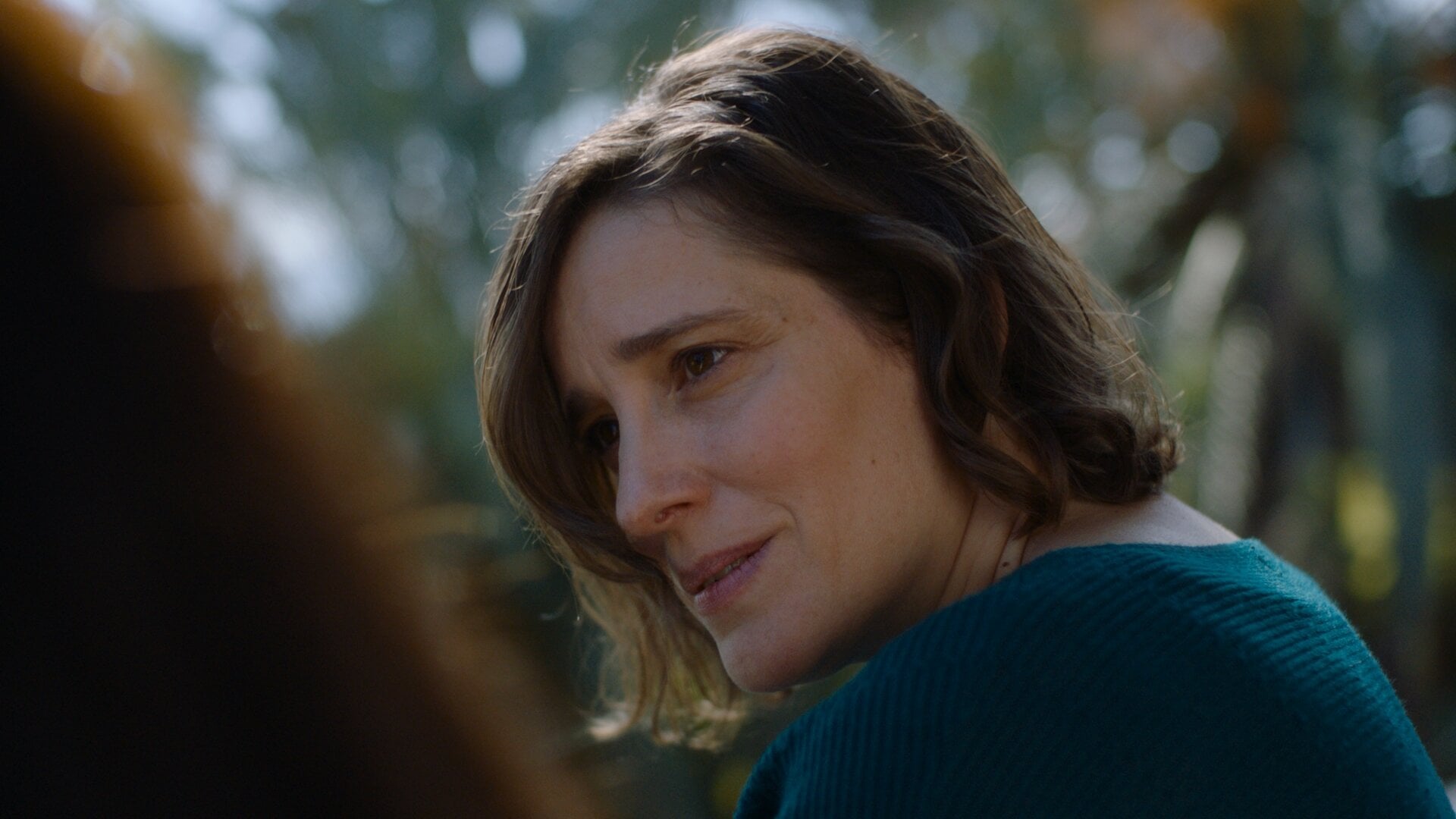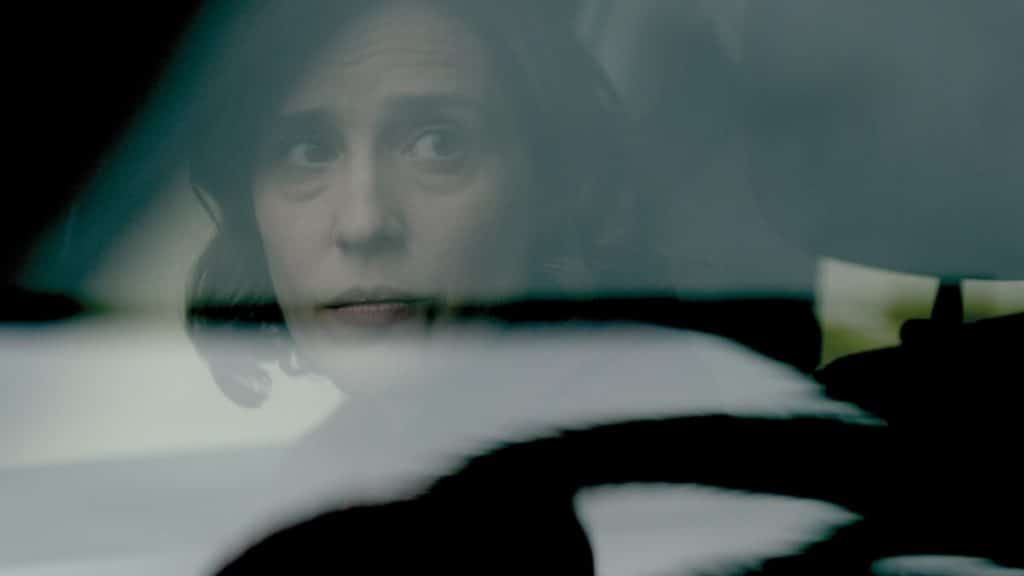At the Raindance film festival, London, UK, 27 October–6 November 2021
Motherhood is what Patchwork is all about, something women are meant to take to naturally, according to its central character, Chara, who really really wants to be the perfect mother to her lovely daughter, but something isn’t quite right. Chara just isn’t feeling it. Post-natal depression that’s gone on too long, maybe, or a marriage to a nice man that’s proving to be too cloying, perhaps. Or maybe, with a fulltime job and housekeeping to do, she’s just worn out.
Director Petros Charalambous and writer Janine Teerling are wary about revealing what’s afflicting Chara. The focus stays so tight on her that it’s hard to get context, even though we follow Chara into work, where she is clearly failing at being something menial in HR, and back home, where her husband is endlessly supportive but gently edging her towards having another child. The close-quarters camera and often sombre lighting build an atmosphere of isolation and claustrophobia, and the soundscape of dogs barking plaintively, cars in the distance, disembodied office chatter, only up the ante on the feeling that Chara is stuck inside herself somewhere, unable to get out.
The arrival at work of an intern called Melina – a colleague’s wayward daughter in fact – stirs something in Chara, which might be a maternal urge, or maybe Melina reminds Chara of her own troubled history. When Chara discovers/intuits that Melina’s mother seems to have abandoned her, things move towards a climax.
Of sorts. Patchwork may be all about intense human emotion but in this study of a troubled psyche the demons stay (mostly) hidden. Instead Teerling and Charalambous only hint at what’s really going on in Chara’s head – her fascination with browsing internet property sites looking for one-bed apartments saying a lot more than Chara ever does. And there’s a neat scene in a shrink’s office where the usual scenario – a dump of explicatory backstory into the protagonist’s mouth – is deliberately (and amusingly) teased and then withheld. “You never talk,” her analyst complains.
The title refers to a patchwork bag that Chara’s mother made for her years before, and which has a stronger hold on her than Chara does on her actual mother, who is living not too far away but is effectively out of her life. Watching the film is also a patchwork process, of trying to assemble a full picture of what’s going on out of odds and sods.
There are three significant performances in this film. Angeliki Papoulia as Chara, a thousand little hesitancies and worries manifest in a demonstration of acting subtlety ringing the changes on what might have been a one-note study of a crack-up. Joy Rieger plays Melina, the disaffected, disconnected teenager Chara tries to “mother” (to mostly disastrous effect), another good performance by the Israeli actor, who makes Melina something more than the standard surly teenager, even though the role is a bit of a cipher. And Stella Fyrogeni, as Chara’s boss Christie, precisely the woman Chara might want to be – vivacious, independent, successful… and childless. Having just seen Fyrogeni a few days ago in Pause, where she plays the polar opposite of Christie, I had to keep checking it was the same actor.
At a certain point Patchwork feels the need to get things off its chest, to get the suppressed stuff up to the surface, and the crunching from the gearbox is audible. And then, in the dying seconds of the film, it sets off on a track that could have been wrung for emotional moisture if it gone that way 20 minutes before. But this is more the chamber work than the full orchestra, and at the moment Patchwork is about to transition from the minor key to the major, it ends. Quietly.
© Steve Morrissey 2021


